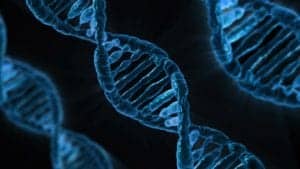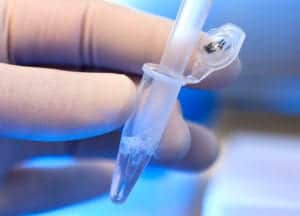High cholesterol plagues many people, but could there be a solution that kicks cholesterol to the curb once and for all? Researchers have successfully tested a new injection in animals that alters the cholesterol-causing gene, lowering cholesterol levels and making it much more manageable in a single dose.
High cholesterol occurs when there is a buildup of lipids, or fat cells, in the bloodstream. Too much of these lipids can cause the flow of blood to slow down, increasing the risk of heart disease, stroke and other high risk conditions. According to the Center for Disease Control, over 73 million Americans have been diagnosed with high cholesterol. While it is often contributed to poor diet and lifestyle choices, the truth is that very few people actually have low LDL, or “bad,” cholesterol levels.
 When observing these people with naturally low cholesterol levels, it was found that they had a specific mutation in the liver, which caused them not to produce a protein called PCSK9. This protein, when it is produced normally, actually degrades another protein that is known to reduce LDL cholesterol in the blood. However, when PCSK9 is not present, this second protein is free to remove LDL cholesterol without hindrance.
When observing these people with naturally low cholesterol levels, it was found that they had a specific mutation in the liver, which caused them not to produce a protein called PCSK9. This protein, when it is produced normally, actually degrades another protein that is known to reduce LDL cholesterol in the blood. However, when PCSK9 is not present, this second protein is free to remove LDL cholesterol without hindrance.
Gilles Lambert at the University of Reunion Island stated that people who do not produce PCSK9 in normal amounts “have a lower incidence of cardiovascular disease and no apparent side effects whatsoever.” Lambert has published extensive research on this protein and its purpose.
Related: Cholesterol Drugs May Lower Alzheimer’s Risk, Study Says
When developing a treatment for high cholesterol, two pharmaceutical companies sought to replicate the effect of this mutation. Their solution was to create an injection of antibodies that would remove PCSK9 from the bloodstream, therefore allowing that second protein to break down LDL cholesterol. There has since been no side effects reported in the trials of this antibody injection, and full results are expected to be released in March, 2017.

However, this antibody injection is not a “one-off.” AstraZeneca, on the other hand, has discussed results of an animal test in which a gene-altering injection reduced cholesterol levels in mice almost immediately. The DNA editing technique is called CRISPR, and only one injection can hold the power to lower cholesterol levels permanently. In animal trials, the results seem promising. Nonetheless, AstraZeneca has not confirmed whether or not they will continue to pursue this research.
The CRISPR technique works because it alters the gene itself, rather than supplying antibodies that have to be replaced every four to six weeks. The result is an almost direct reflection of the people who were born with the mutation preventing the production of PCSK9. Despite successful animal trials, a representative from AstraZeneca says that human trials are still decades away.
Related: Scientists Uncover Key Fat-Burning Gene in New Study
Marissa is a health and fitness writer from the Tampa Bay area. In addition to researching the latest trending topics, she enjoys instructing kickboxing classes and posting incessantly to her Instagram account.


![How To: ‘Fix’ Crepey Skin [Watch]](https://cdn.vitalupdates.com/wp-content/uploads/2017/05/bhmdad.png)












